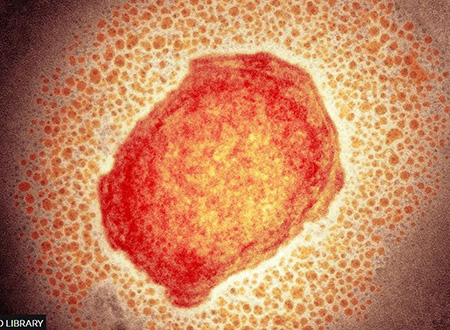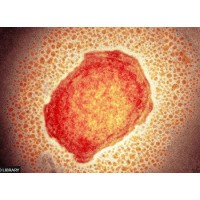High-risk monkeypox contacts advised to isolate

Anyone at the highest risk of having caught monkeypox should isolate for 21 days, official guidance says.
The UK Health Security Agency's advice is for anyone who has direct or household contact with a confirmed case.
Contacts are advised to provide their details for contact tracing, forgo travel, and avoid contact with immunosuppressed people, pregnant women, and children under 12.
The UK has confirmed 21 cases, with the first case in Scotland on Monday.
More than 80 have also been identified across Europe, the US, Canada, Israel, and Australia.
Prime Minister Boris Johnson said: "As things stand the judgment is that it's rare. I think we're looking very carefully at the circumstances of transmission.
"It hasn't yet proved fatal in any case that we know of, certainly not in this country.
"The UK Health Security Agency - a new body - is obviously following it very closely."
Monkeypox is a rare viral infection most common in remote parts of central and west Africa. The disease, first found in monkeys, does not tend to spread easily between people but can be transmitted through close physical contact, including sexual intercourse.
Symptoms, which include a high temperature, aches, and a rash of raised spots that later turn into blisters, are typically mild and for most people clear up within two to four weeks.
A person is considered at high risk of having caught the infection if they have had household or sexual contact with, or have changed the bedding of an infected person without wearing personal protective equipment (PPE).
Other people who may have come into contact with a case do not need to stay at home and isolate themselves but should watch out for symptoms such as fever and a rash.
This article is from BBC News.

